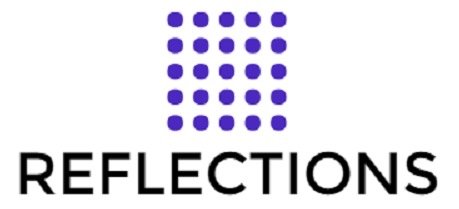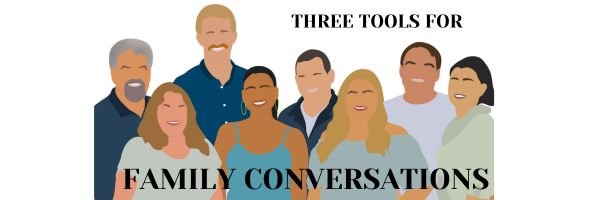Three Tools for Family Conversations
Image of happy adults
Here are links to three organizations which help families and friends share information and feelings related to emergencies, normal aging, and end-of-life decision-making. Who will make medical and financial decisions for the person who becomes disabled? How can the caretaker get the information they need to make appropriate decisions? The materials referenced below will help.
1. People’s Memorial Association is a non-profit, consumer-oriented organization, based in Seattle, which helps its members and the public make informed decisions about funeral arrangements and other end-of-life matters. You can become a lifetime member by paying a small one-time membership fee, but the information on their website is available for anyone to use. You can download a document from the PMA website that you can fill out and share with the family members (or other helpers) most likely to come to your assistance when you need help. On the PMA website, it’s referred to as the PMA Checklist. It’s a four-page document for recording information your potential caregiver will want to know. It can also serve as an outline of topics you should discuss with your family.
2. Compassion and Choices is a national organization which helps individuals and families make difficult decisions about caregiving. They offer a free workbook called My End-of-Life Decisions . You can request that they send you a printed copy or you can download it yourself from their website. The booklet will guide you in figuring out what factors are most important to you when you need help. Even if you do not complete their forms, the questions asked will be a good basis for discussion with loved ones.
3. The Conversation Project is a non-profit organization which encourages families and friends to have meaningful conversations about important issues in their lives. It provides suggestions for how to get a conversation started and what questions to address. Their free publication, called Your Conversation Starter Guide, asks you to think about what things you care about the most and then suggests ways to begin conversations about those matters.
These are difficult discussions, especially if you have not shared a lot of personal information in the past. It’s possible you haven’t even thought about some of these issues previously. However, you are more likely to get the care you need and have your financial resources used appropriately, if end-of-life concerns can be discussed and understood before they have to be dealt with. To give an example from my own experience, my aunt made no secret of her desire to avoid being on the nursing floor of her retirement home. She told me repeatedly that she felt she had had a good life and didn’t want it unnecessarily prolonged. That coaching by her over a period of years, gave me the determination to say “no” to a surgical procedure a doctor recommended for her at around 96 years of age. It turned out the diagnosis was wrong and the surgery wasn’t actually needed, but I didn’t know that until later. The doctor told me she would die within 6 months without the surgery (installing a pacemaker). I still said “no” and my aunt lived for another 5 years.
Since family members often get together over the holidays and often have time available for conversations, consider suggesting these documents as a topic to talk about. It could be one of the best things you do for yourself and the family members who care about you.

